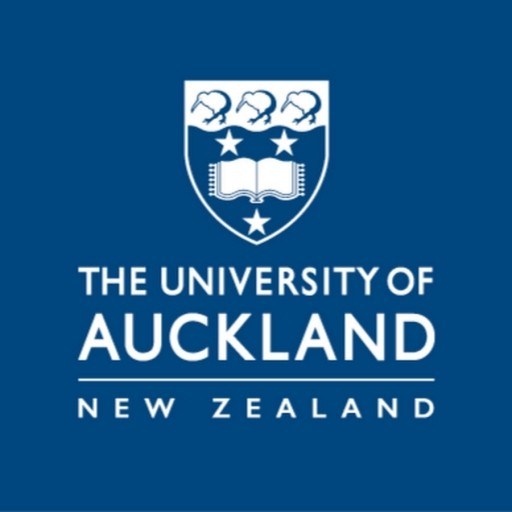Photos of university / #universityofauckland
The Master of Educational Leadership at the University of Auckland is a comprehensive postgraduate program designed to prepare current and aspiring educational leaders to effectively manage and lead within diverse educational settings. This programme provides students with an advanced understanding of leadership theories, management strategies, and policy developments relevant to schools, tertiary institutions, and other educational organizations. Emphasizing critical thinking, innovative problem-solving, and ethical decision-making, the course aims to empower graduates to positively influence educational practices and policy at local, national, and international levels.
Throughout the programme, students engage with complex issues such as curriculum development, change management, staff development, and governance, equipping them with practical skills applicable in various leadership roles. The curriculum combines theoretical frameworks with real-world case studies, fostering reflective practice and strategic planning capabilities. Faculty members are renowned experts in the field of education, offering guidance rooted in extensive research and practical experience.
The programme is suitable for educators seeking leadership roles, administrators aiming to enhance their skills, and policy professionals involved in educational reform. It features a flexible delivery mode, including evening classes and online components, accommodating the diverse needs of students balancing work commitments with study. Graduates of this programme gain a competitive edge in the education sector, with enhanced capabilities to lead change, improve organizational effectiveness, and advocate for equitable educational opportunities.
Research opportunities are integrated into the programme, allowing students to explore pertinent issues such as educational equity, digital transformation, and community engagement. Collaborative learning and networking opportunities with peers and industry leaders are encouraged, fostering a vibrant professional community. Upon completion, graduates are well-equipped to make significant contributions to the development of educational institutions and policies, ultimately impacting student outcomes and community well-being.
There are two pathways within the degree – a Research Masters (completion of a thesis) or a Taught Masters (course work and a dissertation).
Research Masters
- 60 ects Thesis
Taught Masters
- 30 ects Dissertation
- Special Topic: Leadership for Learning
- Special Topic: Accelerating Learning
- Early Years Pedagogy
- Education Law: Policy Implications
- Educational Leadership
- Educational Policy and Organisations
- Educational Leadership in the Electronic Age
- ECE Curriculum Issues
- Undertaking Research for School Improvement
- Mentoring Teachers
- Developing Professional Expertise
- Education and Empowerment
- Educational Change
- Special Topic: Culturally Responsive Leadership
- Researching Māori Education
Entry criteria
In order to be admitted to this programme, a student needs to have completed the requirements for one of the following:
- a Postgraduate Diploma in Educational Leadership from this University, or its equivalent approved by Senate or its representative with an average grade of B or higher
- a postgraduate diploma in education as approved by the Dean of the Faculty of Education and Social Work with an average grade of B or higher
and
- hold a professional qualification in teaching or other profession approved by Senate or its representative
- have at least three years of practical experience in teaching or a related profession, including experience in a formal or informal leadership and/or management role.
Documents to support your application
- Birth Certificate, or Relevant pages of your passport, or Citizenship Certificate.
- ID photo
- your official academic transcript
- your official programme completion certificate
- your mark sheets
- your relevant course outlines (3)
- IELTS or TOEFL or equivalent.
Minimum postgraduate English language requirements
- IELTS (Academic): Overall score of 6.5 and all bands 6.0 or better
- Internet-based TOEFL (iBT): Overall score of 90 plus a written score of 21
- Paper-based TOEFL: Overall score of 575 plus Essay (TWE) of 4.5
- Cambridge English: Advanced (CAE) and Cambridge English: Proficiency (CPE): Overall score of 176 and all bands 169 or better
- Pearson Test of English (PTE) Academic: Overall score of 58 and no PTE communicative skills score below 50. You must authorise the University to view and verify your PTE scores.
- Michigan English Language Assessment Battery (MELAB): 85
The University of Auckland offers various funding options for students enrolled in the Educational Leadership programme. Domestic students may be eligible for government-subsidized study loans and allowances, including the New Zealand Student Loan Scheme, which covers tuition fees and provides living cost support. International students are generally responsible for their tuition fees, which can be paid upfront or through international student loan schemes if available. Scholarships are also available for both domestic and international students based on academic merit, leadership potential, and financial need. These scholarships are administered by the university's scholarships office and may cover partial or full tuition, as well as living expenses. Students are encouraged to explore external funding opportunities through government, private foundations, and employer sponsorships. The university provides financial advice and planning resources to help students manage their study costs effectively. Payment plans may be available, allowing students to pay tuition fees in installments. Additionally, some students might access part-time work opportunities on or near campus to support their finances. International students should also consider costs beyond tuition, including health insurance, visa fees, accommodation, and daily living expenses. The university’s Career Development and Student Services departments offer guidance on financial planning and employment options. Overall, financing education at the University of Auckland requires careful planning and awareness of the various scholarships, loans, and work opportunities available to support students throughout their studies in Educational Leadership.
The Master of Educational Leadership at the University of Auckland is designed to develop advanced knowledge and skills for those seeking leadership roles within educational settings. This program provides a comprehensive understanding of the key principles of educational leadership, including strategic planning, policy development, change management, and ethical decision-making. It aims to prepare graduates to effectively lead and manage educational organizations, whether in schools, tertiary institutions, or other educational agencies. The curriculum typically covers topics such as organizational leadership, educational policy, curriculum development, and research methods in education. Students may have the opportunity to engage in practical leadership projects, internships, or research that allows them to apply theoretical concepts in real-world contexts. The program emphasizes reflective practice and critical thinking, encouraging students to analyze current trends and challenges in education and to develop innovative solutions. With experienced faculty members who are experts in their fields, students gain valuable insights into contemporary educational issues and leadership strategies. The program is suitable for experienced educators aspiring to senior leadership positions or those who want to influence educational policy and reform. It often includes coursework, research components, and opportunities for networking with educational professionals and policymakers. Graduates of the program are equipped to take on leadership roles such as school principals, senior administrators, education consultants, policy advisors, or researchers. The University of Auckland's strong links with the education sector provide students with access to a broad network of professionals and opportunities for collaboration. Overall, the Master of Educational Leadership aims to cultivate effective leaders committed to improving educational outcomes and fostering positive change within their organizations and communities.








